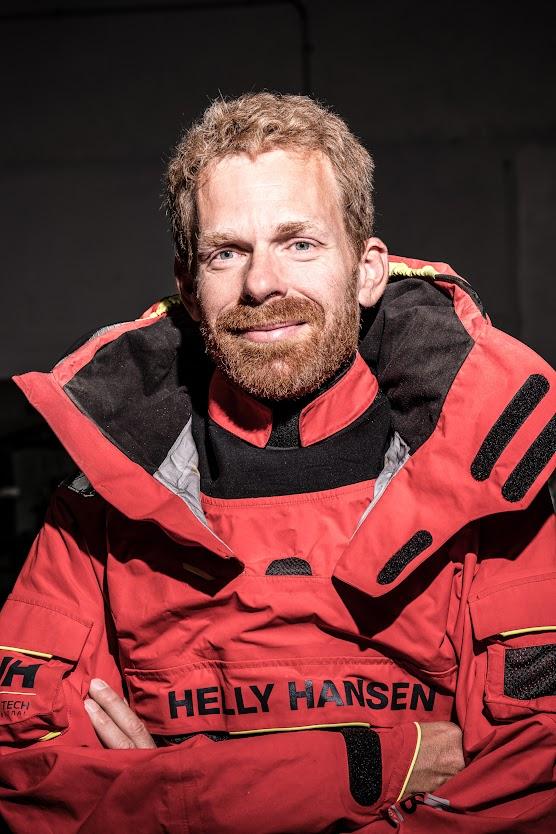Follow Me
Milan Koláček
jachting
They laughed. The manager, the wife of the boss of the shipyard, and his daughter, whom I had just run into in the office, looked at me as if to check if they understood correctly, and laughed amusedly.
Because in a way, it was funny.
I was explaining that I was Milan from the Czech Republic and that I had come to ask in person because they hadn’t replied to two emails I had sent earlier. And that I would really like to work for them to learn how to build the best boats.
There wouldn’t be anything that special about it—if I hadn’t been standing right then in the office of Cookson Boats in Auckland, New Zealand, where I had just arrived after traveling halfway around the world.
“You flew all the way from Europe?” they asked, making sure I was really such an oddball.
It would be an adventure even today, let alone back in 2005, when I set out for New Zealand, driven by determination. “Wait here a moment until Mick comes in from the hall,” they told me. And sure enough, after a while, the smiling owner was shaking my hand. The same one I had written to twice with no reply.
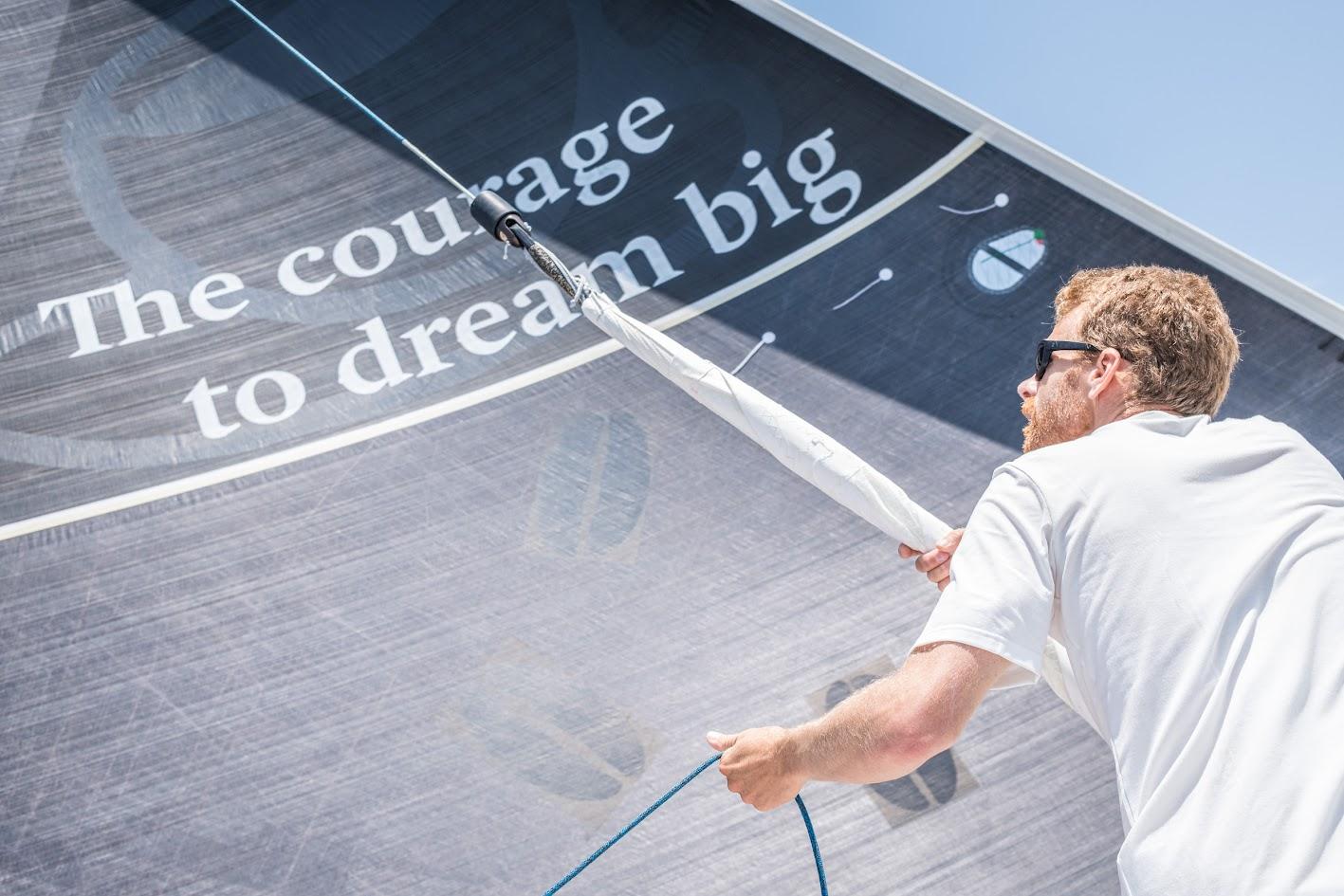
Maybe if I had been a local, they simply would have sent me home. But I was lucky. I must have come across as so honest and naive that there was no way they could say no. And besides, at that moment, they were building three boats at once in their big sheds, so they had room to take me in. Of course, I didn’t know any of that in advance. I just had the address, a paper map, and a recommendation that “they build the best boats in New Zealand.”
Mick looked like a tough guy, but he treated me kindly. He listened to me and in the end said I should come on Monday. For the next three days, he let me sweep and wander around among the workers, where he himself usually spent time too. He was a great builder and could tell who could work hard. So when he saw that I could actually get to work and wasn’t just leaning on a broom, he agreed I could stay longer.
That’s how I definitively started working toward the dream that a boy from the Czech Republic stubbornly and relentlessly chased—against all odds.
A dream that I’m still living today.
The file my dad handed me was terribly dull. But even at ten years old, I was used to not talking back and just working. Even though it was really tough, I filed the railing, notches, and other bits of fittings as best I could. I polished even the last uneven spots to make them look perfect. Simply because I loved creating something. Being there when something is being made.
In this case, it was a boat my dad had decided to build.
As soon as a friend once gave him a ride on a reservoir, he was so thrilled that he decided to build his own small sailboat. As a soldier, he was often transferred from one place to another, so we moved with him. I was born in Louny in central Bohemia, we built the boat in Příbram, and eventually lived in the mountains, from where we’d often haul the boat—sometimes still covered in snow—to sail it on a dam. After the Velvet Revolution, my dad left the army, and he and my mom moved near Brno and took the boat to near reservoir, intending to use it for family outings.
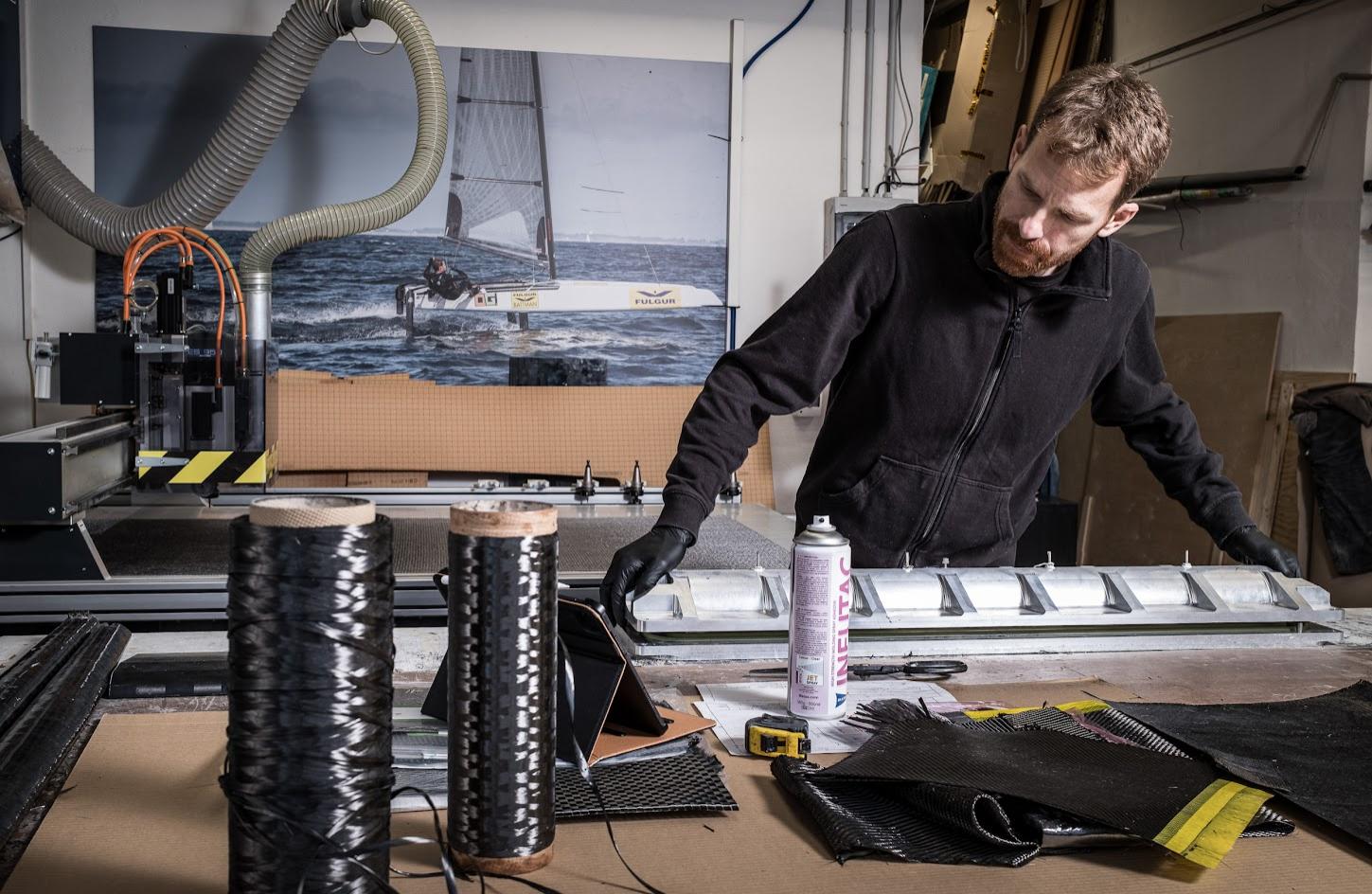
By then, I was already completely hooked.
As a kid, I tried different sports like any other boy. But as soon as my parents sat me on a small boat and let go—and the wind caught—I drifted away a bit and instantly knew this was it. The simple logic that when I did something on the boat, it would respond, fascinated me from the very beginning.
That’s also why, when I was fourteen, my dad pulled an old 420 racing dinghy out of the nettles at a friend’s place, saying we’d fix it up and I could race it with my younger brother. We even had to make our own mast out of wooden beams, the sails weren’t racing ones, and at our first regatta, we didn’t even have a spinnaker—someone had to lend us one there.
That’s how we threw ourselves into it—wearing windbreakers, in the freezing cold of April.
Don’t expect a happy ending—we got completely wrecked, because obviously we didn’t know a thing, didn’t know the rules, and had no training. But we were incredibly excited.
On top of that, the class president, Pavel Hlubuček, saw us and decided to help. He gave us his old aluminum mast and lent us sails.
So, patched together like that, with everything second-hand, we slowly fought our way to good results over the next four years. We worked hard, went through everything from the ground up. We had no coaches—we were self-taught.
I recently found a notebook from that time where I used to record after each race where the wind was blowing from and to, how we sailed, how the boat reacted, how we trimmed the sails. I was already doing analyses then, trying to learn something for the next race.
But everything was still irregular—I wasn’t sailing consistently yet. That only changed when I got into university in Brno, where I’d go sailing on the Prýgl lake after classes.
It was a hobby, pure joy. Even then, I never imagined what kind of world I’d one day find myself in.
When you want to build your own boat, the first thing you need is someone to design it. To come up with it. To draw the plans.
I had been eyeing Sam Manuard for a while—a Frenchman who designed sexy and fast yachts. I liked them. He was more expensive, sure, but this wasn’t something worth cutting corners on. I didn’t want to build something that wouldn’t sail well.
I remember sitting with my dad over a beer one time and telling him that I had to build that boat. And that there was no way around it—I’d have to pay for the plans now. Make that decisive step.
So I pulled money from my building savings account, sent everything I had to Sam in France, and waited. I waited anxiously for the drawings to start arriving from him, one by one.
It’s the same as with any life-changing decision. The hardest part is making it—going through all the thinking, the hesitation. But once you take that step, once things are in motion, all that’s left is figuring out how to get it done, how to reach the finish line. At least that’s how it works for me. I always set a clear goal for myself and then head in that direction. I often don’t know exactly how I’ll get there, but I know I’ll do everything I can to make it happen.
It’s a bit like being at sea—you plan and prepare everything ahead of time, but in the end, you have to react to whatever situation you find yourself in. Waves, wind, storms. You have to know how to deal with it, here and now.
I know there are many things you simply can’t plan, no matter how hard you try—but I also know I can push myself to the limit. That’s just how I’m wired.
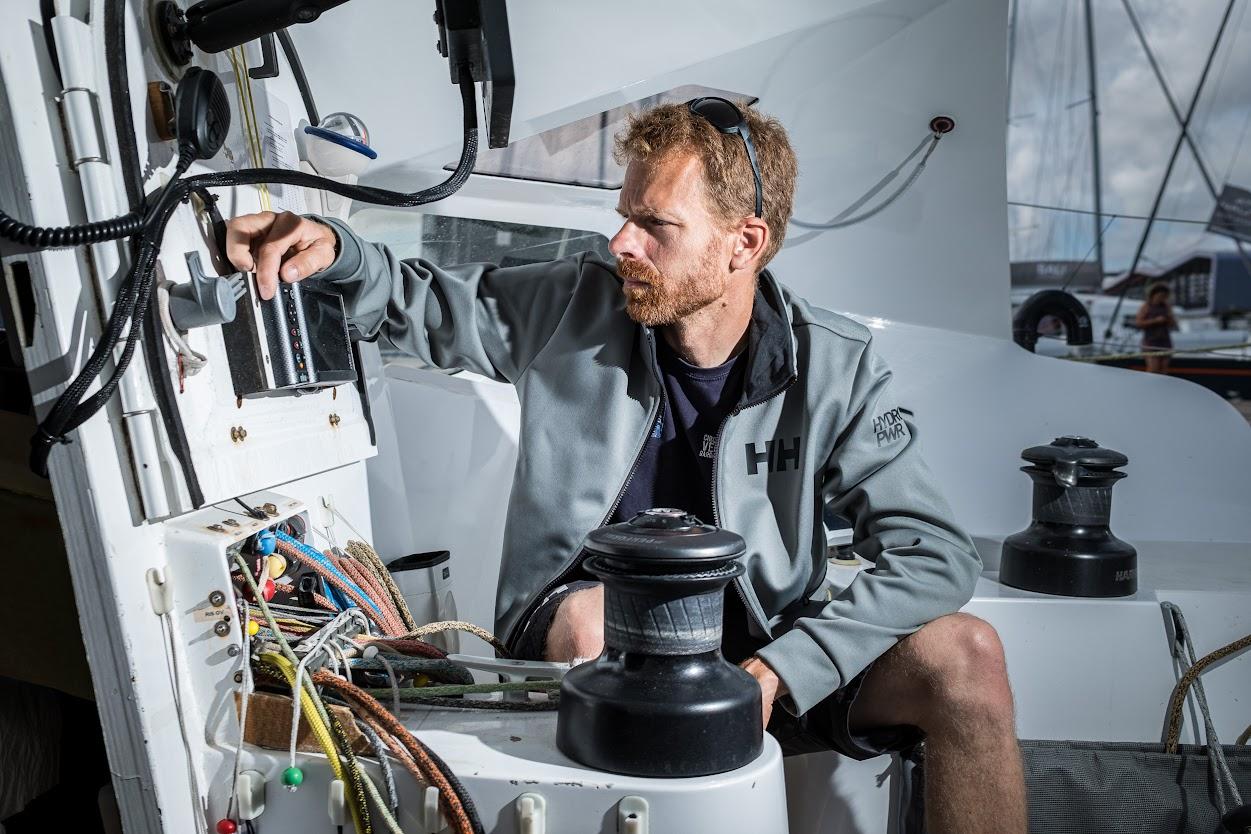
That’s how our dad drilled us, my brother and me. And also our grandfather from rural part of the country, where we used to spend summers as kids. Before he went to work, he would always leave us a list of tasks to do around the farm and garden—and heaven help us if we didn’t do them properly. That’s how you naturally learn that it’s better to grit your teeth and do something right the first time than to have to go back and fix or redo it later.
Only when grandpa came back and had no more tasks for us could we go to the fair or take a swim in the pond. Maybe because of that kind of upbringing, I still don’t know how to rest properly. As soon as I lie down for a while, I get this nagging feeling that I should be doing something more useful.
In today’s world of social media, it can seem like you can buy your way into things—like people can create the illusion that things are easy, that you can skip half the steps. But no. That’s not how real life works. I believe that sooner or later, it always becomes clear how much ground you’ve really covered.
And I’d walked a good few years' worth of that ground. Step by step, I gradually came to the decision that I wanted my own boat. I knew I could build it, and I knew I’d put in as much time and energy as needed. I knew why I wanted to do it.
What I didn’t know, though, was where the hell I was actually going to build it.
"Yeah, when we were young, we used to sleep on the boat too," smiled an old photographer who happened to be walking along the dock and peeked onto our deck. A guy who took fantastic photos from a small boat during the regattas in Capri, because he knew exactly when and where to pop up.
His comment was sincere, kind, and at the same time captured how much of oddballs we seemed at the turn of the millennium, as a Czech crew among other top-class boats. Sure, even Jarda Havelka, a pioneer of modern Czech offshore sailing, who we were sailing with, had a nice boat from a French shipyard. But the difference in background support compared to the locals, whose hulls and sails were covered with sponsors, was obvious at first glance. They slept in hotels, and we were the only ones making breakfast right in the cabin.
And in between, we even managed to set up a football match with Argentinians from a twenty-meter yacht docked nearby. Our opponents rightly saw us as punks.
But that was just part of that era.
We went to sea for the first time in 1998 with our dad and brother, during a Czech regatta in Croatia—as crew on the boat of the organizer, Pepa Juriga. During that roughly 200-mile race, I experienced my first night sailing and planning tactics, like how to go around which island. I remember how I often just stared around me and thought, “This is good. This is really good...” I was hooked right away and already looking forward to the next year—because while we were still there, we were invited by Jarda Korytář, another big name in our sailing community. He had a team of entrepreneur friends, and my brother and I joined them thanks to our at least basic experience with circuit sailing.
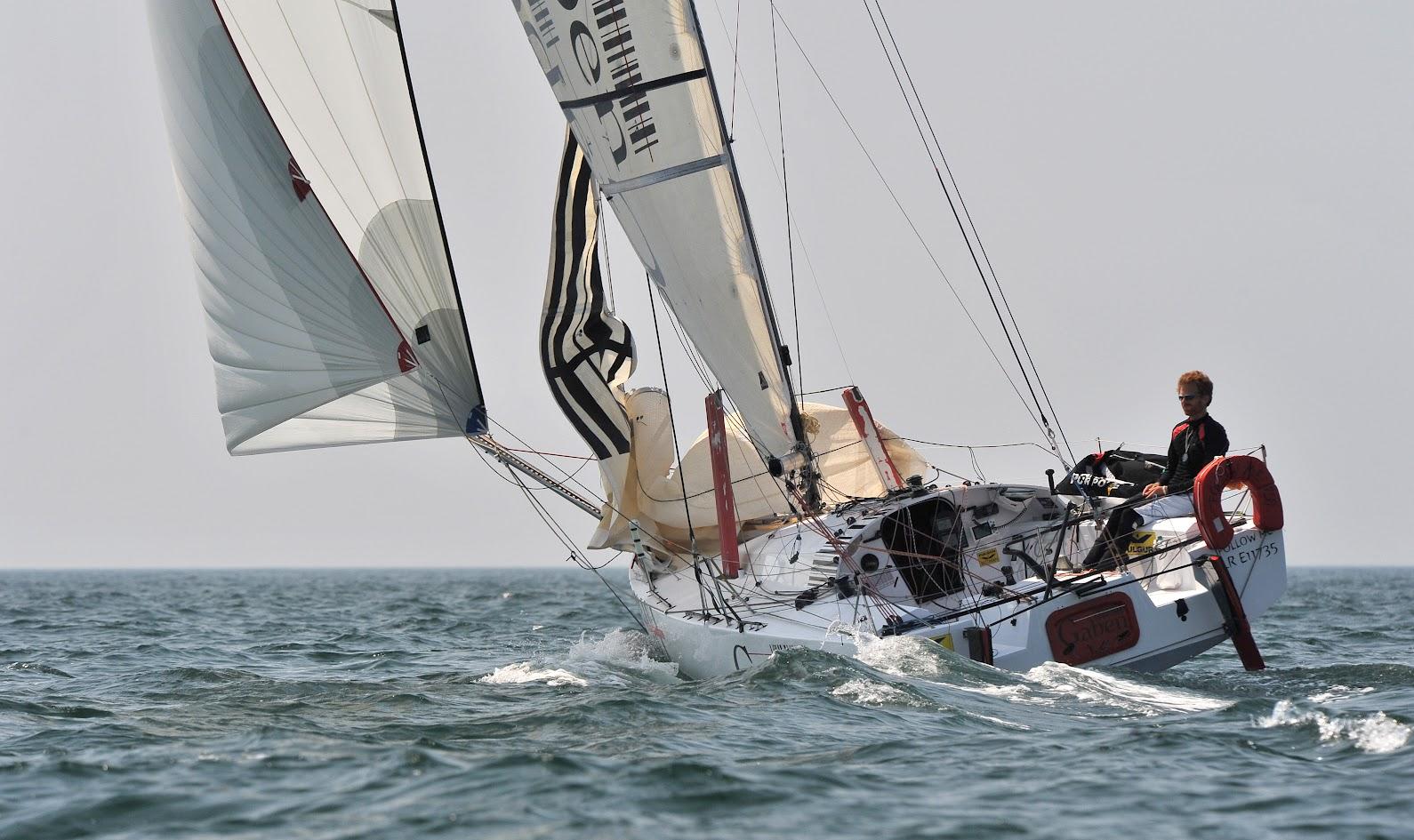
We did a few seasons with him in Croatia. The guys would always pick me up at the dorms in Brno, we’d drive overnight, take over the boat on the coast, and head straight to the race. I steered, my brother trimmed the sails, and we enjoyed being part of the team and going head-to-head with crews from the Mediterranean.
I had no idea I could ever get any further in that world. I only knew about big-time sailing from magazines I brought back from trips. And I didn’t even understand all of it, since I hadn’t learned English—at school, we only had German from elementary on. So I started learning English on my own around that time, just so I could read Yachting World and buy foreign sailing books.
Sailing was my passion—I never turned down a single chance to get out on the sea. But that was all. I thought it would always be like that. I was preparing for a normal life and job. Even on that trip to Capri I mentioned, I was studying for my final exams. Though, of course, I just had my study materials open while thinking about where the wind would come from and which way we’d sail the upcoming race.
With Jarda Havelka and his Polar team, we were improving our results—we even had some good podium finishes, or just shy of them. Still, we kept our feet on the ground. We knew we weren’t top sailors, and compared to the big teams we lacked years of experience and knowledge of the local conditions—because yes, even at sea, it’s all about the terrain.
But we worked well together on the boat and felt ourselves getting better.
If you were looking for a place to shoot a horror movie, you wouldn’t find many better ones. The former coal mine in Babice, just outside Brno—that’s old, peeling buildings and a shaft in the middle of the forest, all surrounded by a fence. Around it lie dismantled, rusting cars scattered across bare earth, with a digger, a forklift, and all sorts of junk nearby. As soon as you get close, three Dobermans come running.
My brother and I used to drive past the place on our way to visit our parents. And since we were desperately searching for somewhere to start building my dream boat, one day we just said: “What about here?”
We stopped, looked around by the gate to see if it was possible to get inside—when suddenly a two-meter-tall guy appeared and barked at us: “What do you want here?”
Out of all the answers he could have expected, he probably didn’t see this one coming.
“We’re looking for a place where we could build a boat.”
He paused. “You’re not dealing stolen cars?”
“No, no. We want to build a boat—to sail across the Atlantic.”
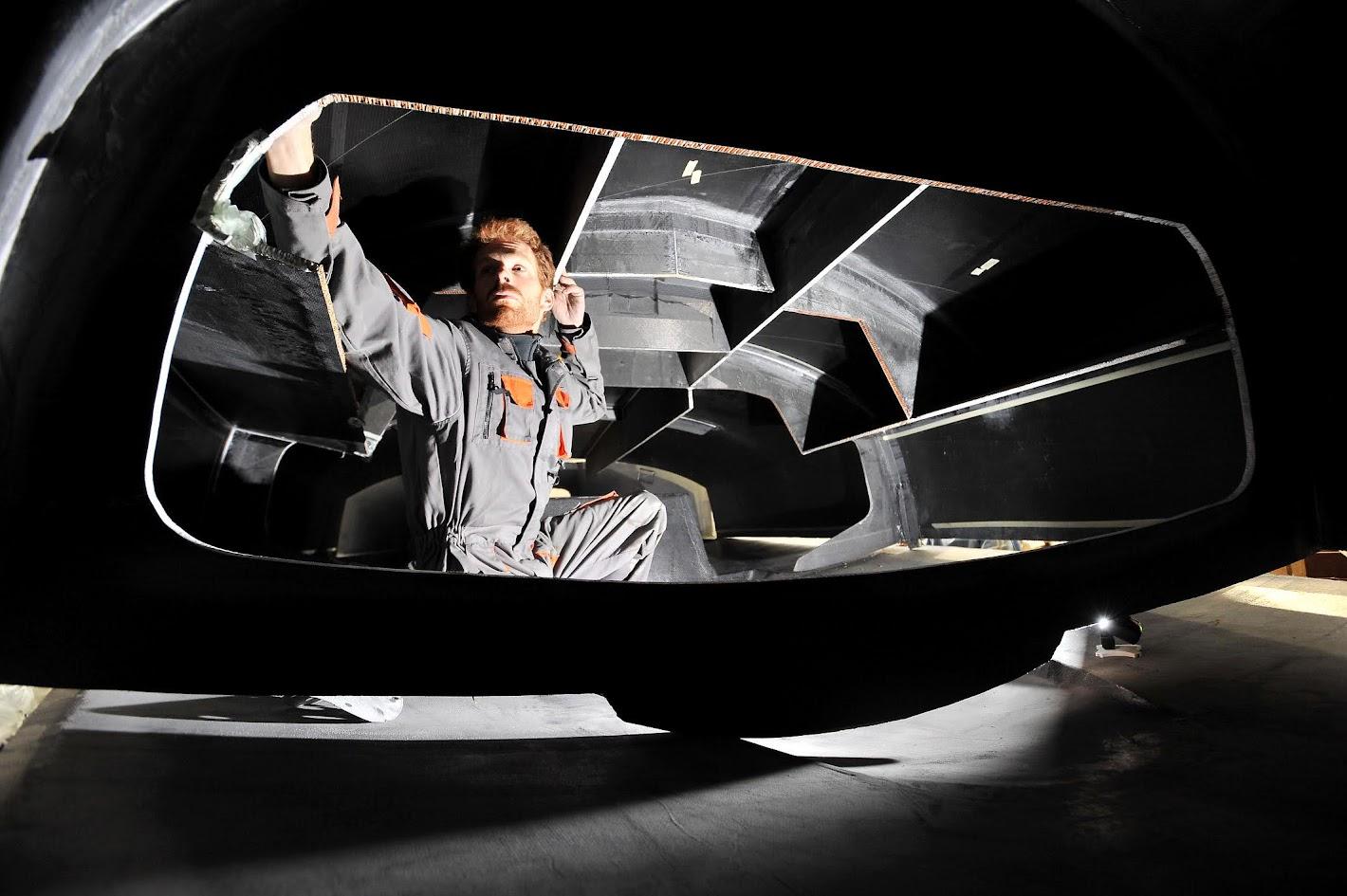
He gave us a skeptical look, kept asking more and more questions, but after about ten minutes, he finally called off the Dobermans and opened the gate. “Alright, come in.” And he showed us around the halls to see if we could do what we had in mind there.
We could. The place was perfect for what we needed. And this guy, named Marek—who at first glance seemed a bit eccentric—became our friend. He had bought the property years ago to build something out of it, and for years had been slowly fixing it up more or less on his own.
We earned his trust to the point that eventually he gave us our own keys.
And of course, when he went on vacation, we even took care of feeding his dogs.
Right here, in the woods near Brno, in an old messy mine, my dream was about to take shape.
This was where the boat was going to be born—the one I had traveled to the other side of the world and back for, and for which I had given up all the certainties I’d built in my life up to that point.
I lasted exactly fourteen days in a regular job. After finishing engineering school, I got hired as a motor designer at Siemens in Frenštát. But it wasn’t until I started that I found out they wouldn’t give me more than four weeks of vacation.
And I needed five to be able to attend all the races with Polar. Nothing else mattered to me.
I tried to convince my supervisor that I’d make up the time on weekends, but that I needed time off here, here, and here—according to the sailing series calendar. And they said it wasn’t possible.
So the next day, I brought them my resignation.
Jarda Korytář immediately hired me as the sports director of a streetball tournament for kids that he was organizing. I was calling schools, preparing the program, and during that time the other Jarda—Havelka—introduced me to Enda O’Coineen, a prominent Irish businessman and sailor who was based in Prague at the time. He said I was talented and asked if he could help me out. After all, Polar was ending after that season anyway, and I was planning to go somewhere I could both sail and practice the language.
Because of the distance, the British Isles seemed like the best option. I figured that in the worst case, I’d hitchhike home and find a job somewhere.
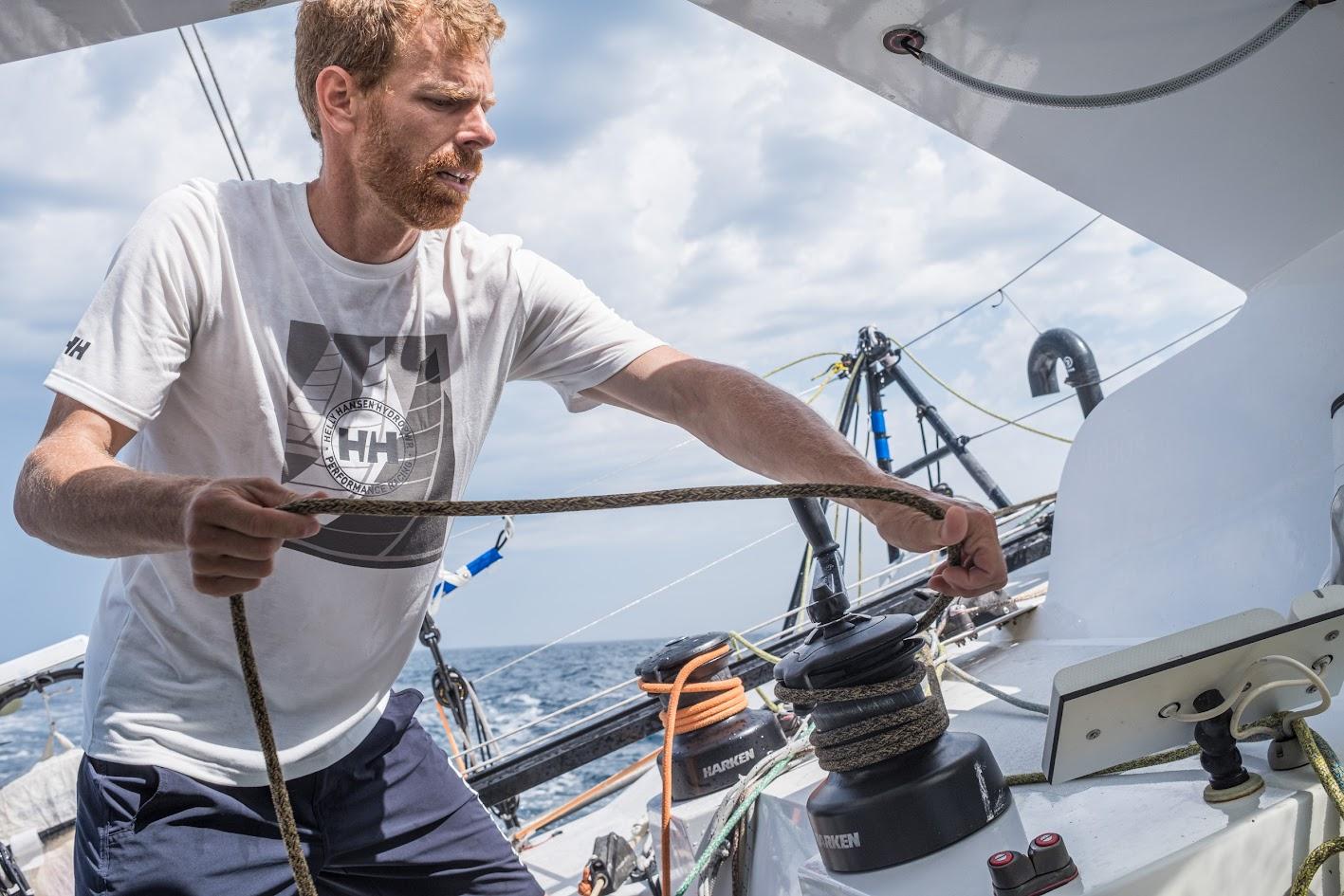
I wasn’t aiming to become some big racer—not at all—I just wanted to keep progressing, learn more, gain experience. I had already picked up what I could in the Czech scene. By the end, we were really good with Polar. But to grow further, I had to go abroad.
Enda helped me tremendously in making that happen. As soon as I arrived in Dublin, his friends from the yacht club took me in, got me a job in a garage to start with, and arranged for me to stay at a lady’s house in a fancy neighborhood. From there, I could see Bono Vox’s estate, and thanks to a friend of my host, I also started learning English intensively.
Meanwhile, I was emailing yacht shops until one of them hired me. They assembled Zodiacs there—motorboats for fishermen or rescuers.
They took me on in the workshop as an assistant to a guy who had amazing patience and taught me the names for everything word by word. I wrote notes like “screwdriver – screwer” on paper to memorize it.
What helped me was that I had always been willing to work hard—from a young age. Thanks to my dad and grandpa, I was a perfectionist. I found my footing.
I spent half a year in that shop before Enda called to say one of his friends in Galway, on the other side of Ireland, was finishing a yacht and looking for someone to take care of it.
“Want to go check it out?” he asked me.
“Of course! When?”
I didn’t hesitate for a second—this was exactly what I’d been looking for. That weekend I took a four-hour bus ride.
At the station, John Killeen picked me up in a Rolls-Royce, showed me the hotel, and most importantly—his new 20-meter yacht, which two guys from New Zealand were just finishing in a nearby shed.
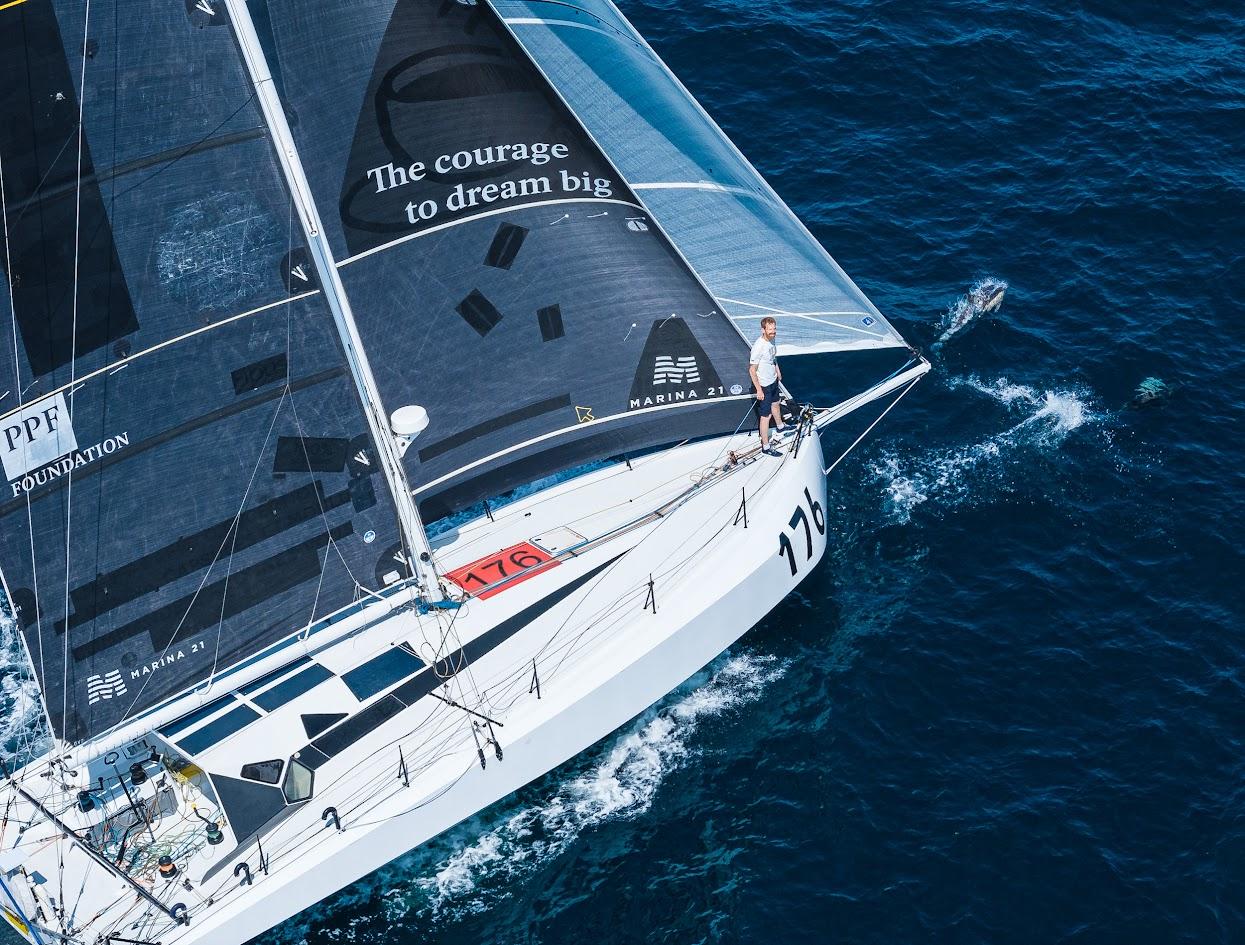
I just stood there staring at it. A beautiful, luxurious boat. A 30-meter carbon mast, three huge cabins, each with its own toilet, a big kitchen, a saloon... And I’d be working here? I’d be responsible for this? That can’t be real. I couldn’t believe it. You don’t even dream of something like this. A Czech kid, just over twenty, fresh out of school—and suddenly this kind of opportunity? It felt completely unreal.
“So, what do you think? Do you like it?” John smiled.
He let me work over the weekend on the boat with the two New Zealanders, and we agreed that after I finished my last two races in Greece with Jarda Korytář, I could start.
I got one of the cabins for myself, and my job was to install all the tech we ordered on the boat—computers, radar, learn how to use everything, and prepare it all so that when John arrived, we could sail out. The boat had to be ready and clean.
So there I was, living on a beautiful yacht, with access to everything I needed, working with state-of-the-art equipment—and getting paid for it.
Dream job.
Six months of actual work time. That’s roughly how long it took us to build Follow Me, the name I gave my boat—so that others would follow me during races.
Of course, my brother helped me, as did my parents and friends, which naturally saved the largest part of the total cost. But it still required a lot of money. In the meantime, my brother and I renovated an attic in the center of Brno, which I had previously taken a mortgage on. We turned it into two apartments and sold one of them. That gave me the funds I needed. It was part of the plan.
Just like I didn’t want to cut costs on top-notch design, I couldn’t compromise on materials either. I wanted to build like the guys in New Zealand—using pre-impregnated carbon fiber fabric that has to be stored at minus eighteen degrees Celsius and then baked at about eighty degrees. The cold reduces the stickiness of the resin it's made with, so it can be shaped, cut, and applied to the wooden framework. Heat then allows it to cure and harden.
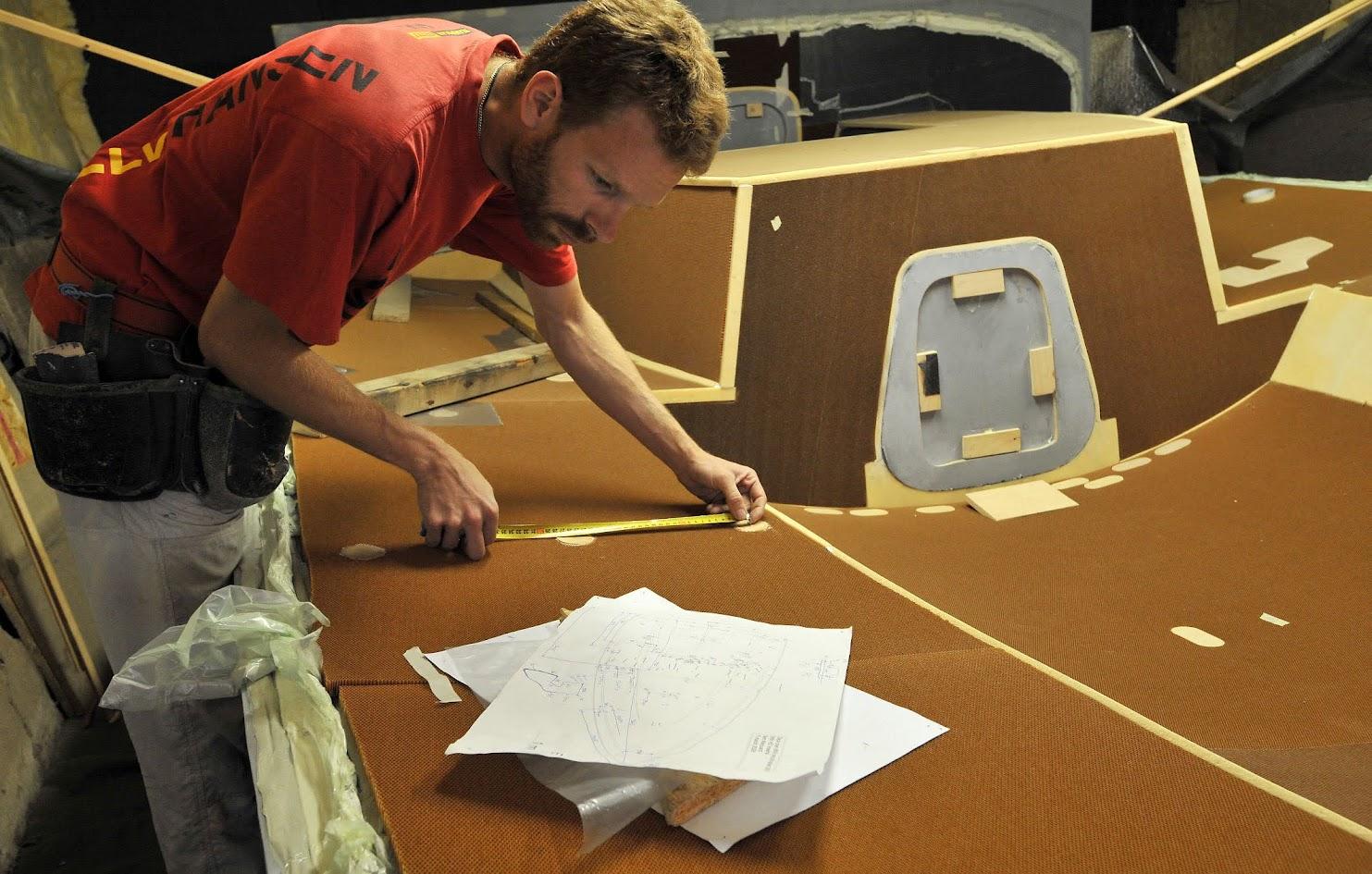
Even just describing the process sounds anything but cheap.
But I was lucky. There’s a company in Olomouc that specializes in this kind of material—and they agreed to sponsor me. Buying the amount I needed would’ve cost me around ten thousand euro.
Building the oven was another interesting part—we turned the mining hall into a curing chamber. We built it out of plywood, lined it with insulation wool, installed a hot-air pipe, and set up temperature sensors—all to replicate exactly what I had seen at Cookson Boats.
And yes—it worked. We managed to create the right conditions without setting anything on fire.
It all sounds very guerrilla-style, but I’d guess that about one in ten racers in the Mini class—even in France—builds their boat themselves like this. They start out with nothing and don’t have the means to buy a finished boat right away, so they go for it this way. In that, I wasn’t all that unique.
What probably did set me apart, though, was that I didn’t even know the world I was heading into with Follow Me. I didn’t know who the top racers were, had no idea about the formalities waiting for me. No—I just wanted my own boat, and the rest would somehow sort itself out.
Only later did I start finding out that a vessel needs to be registered and insured, for example.
Like so many times before in my life, I simply had a clearly set goal—and then dealt with everything that came up along the way.
Even back in Dublin, I was sailing in the winter series and getting to know the local sailors. The Irish are sociable—spend a little time among them and suddenly it feels like you know everyone.
Then I vanished from their radar for a while, and half a year later, I showed up at a race with John and his luxury yacht. The guys looked at me like, “Where the hell did he come from, and what’s he doing on that boat?” I’ll probably never forget the looks on their faces.
John did the occasional race with the boat. Sometimes we crossed over to England or France, but mostly he had it built for his own enjoyment. He’d take his son or some friends out for the weekend. He’s a pretty important and strong-headed businessman—you could see it in him at a glance. But on the boat, he always had this giant grin on his face. He absolutely lit up. You could tell this was what he lived for. This tough, broad guy would suddenly turn into a beaming, happy teddy bear.
And over the two and a half years I worked for him, he really took a liking to me. He appreciated my honesty. When something went wrong, or I didn’t know what to do, I told him—I never tried to cover things up. I noted down every cent I spent on groceries (he reimbursed that separately from my salary). Because of that, he saw I was a straight shooter, not someone trying to scam him. He valued my thoroughness, because—let’s be honest—Irish folks don’t exactly kill themselves with hard work. He saw that I liked the work, and that I’d go above and beyond to get things done.
Every time he showed up, everything was ready, clean, washed. Honestly, I didn’t even clean my own home as well as I cleaned that boat. He, of course, loved that.
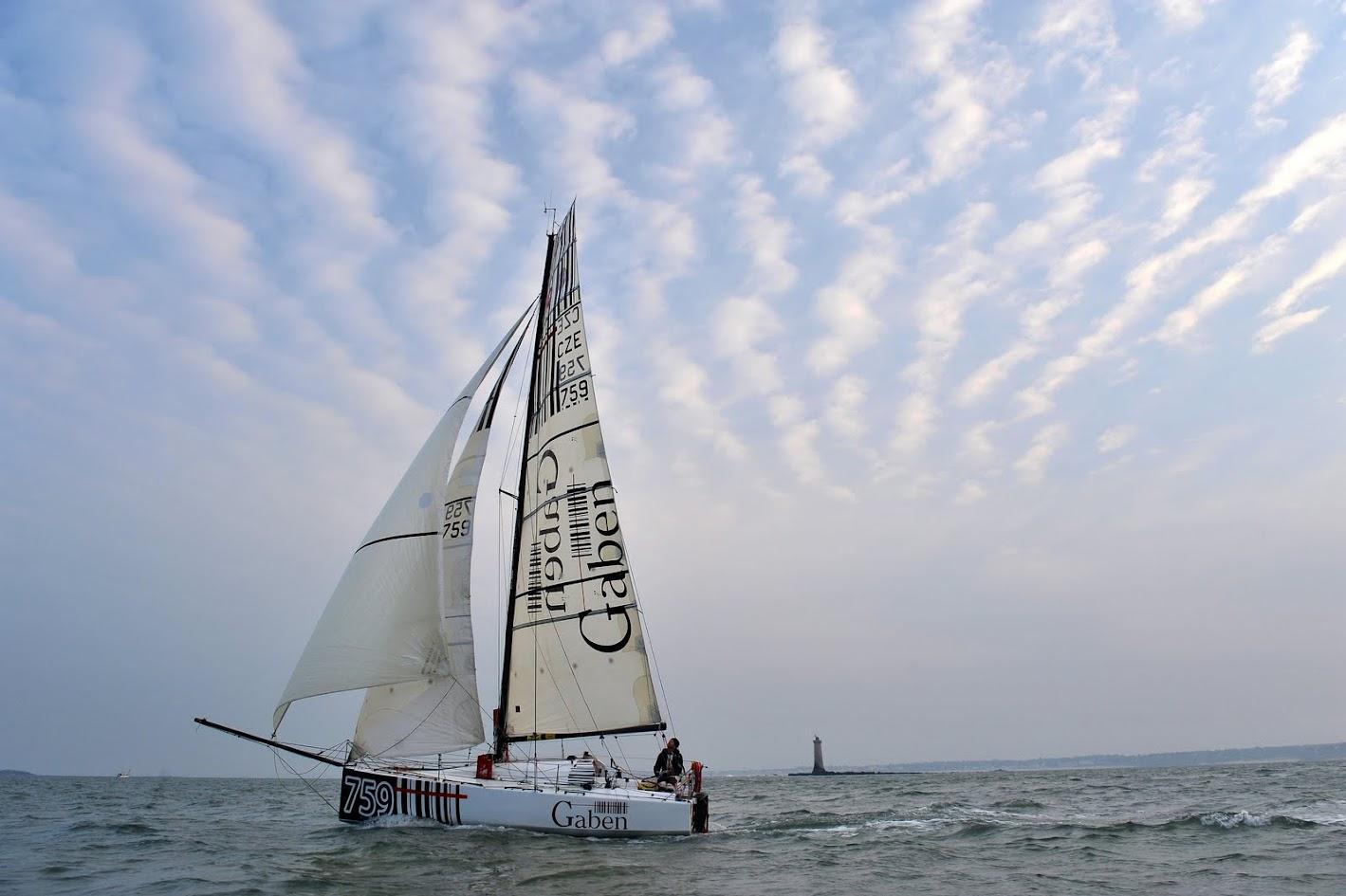
And then he set me on the path I’m on today.
At a boat show in England I went to with him, I started checking out small boats.
“Man, John,” I told him, “one day I want to race across the Atlantic.”
And he said: “Well Milan, then start working on it.”
Those few words—besides the many opportunities he gave me—were the most valuable thing John ever gave me.
Because suddenly it hit me: yeah. He’s right.
I saw with my own eyes how respected he was in his community, everything he did, how many people wanted something from him—and all of that probably because he worked his way there. He was my role model, and clearly knew what he was talking about.
“Start working on it, and it will happen.”
Yeah. John was right. It’s all on me.
So I started putting together presentations and turning my dream into something tangible. At first, I wanted John and Enda to buy a boat and let me race it. I showed them a specific older prototype. Mini class sailboats are either built in series or as one-off prototypes. The latter are more expensive and harder to sail—but they’re faster.
Enda was basically on board, but he wanted to buy me a serial boat.
But I stubbornly stood my ground. No. I didn’t want that. I got fixated on the idea of a prototype. I wanted to win. I believed I could handle such a boat.
Looking back now, maybe it was a bit cocky—turning down someone offering me a boat just because it wasn’t exactly the one I wanted. Maybe it was a mistake. If I’d said yes, I probably would’ve raced the Transat—a race across the Atlantic—several years earlier than I eventually did.
But I wouldn’t have gone down the road I later chose.
The road where I decided to build a prototype myself.
Enda and John were also involved in the Ocean Race, the prestigious round-the-world race, and as an alternative they offered to get me on board the Green Dragon—the boat they had purchased together. That’s basically an invitation to the top league. The elite. A whole other universe.
And I said I appreciated it—but I just wanted to build my own boat.
I had this vision of creating a fantastic, fast sailboat and becoming a successful racer. That if I worked hard enough, I could make it happen. I remembered how good we were with Polar even in modest conditions, and that I had basically managed John’s yacht on my own. Even though he always wanted to be at the helm, I did and adjusted everything else on board. Surely I could handle a smaller boat.
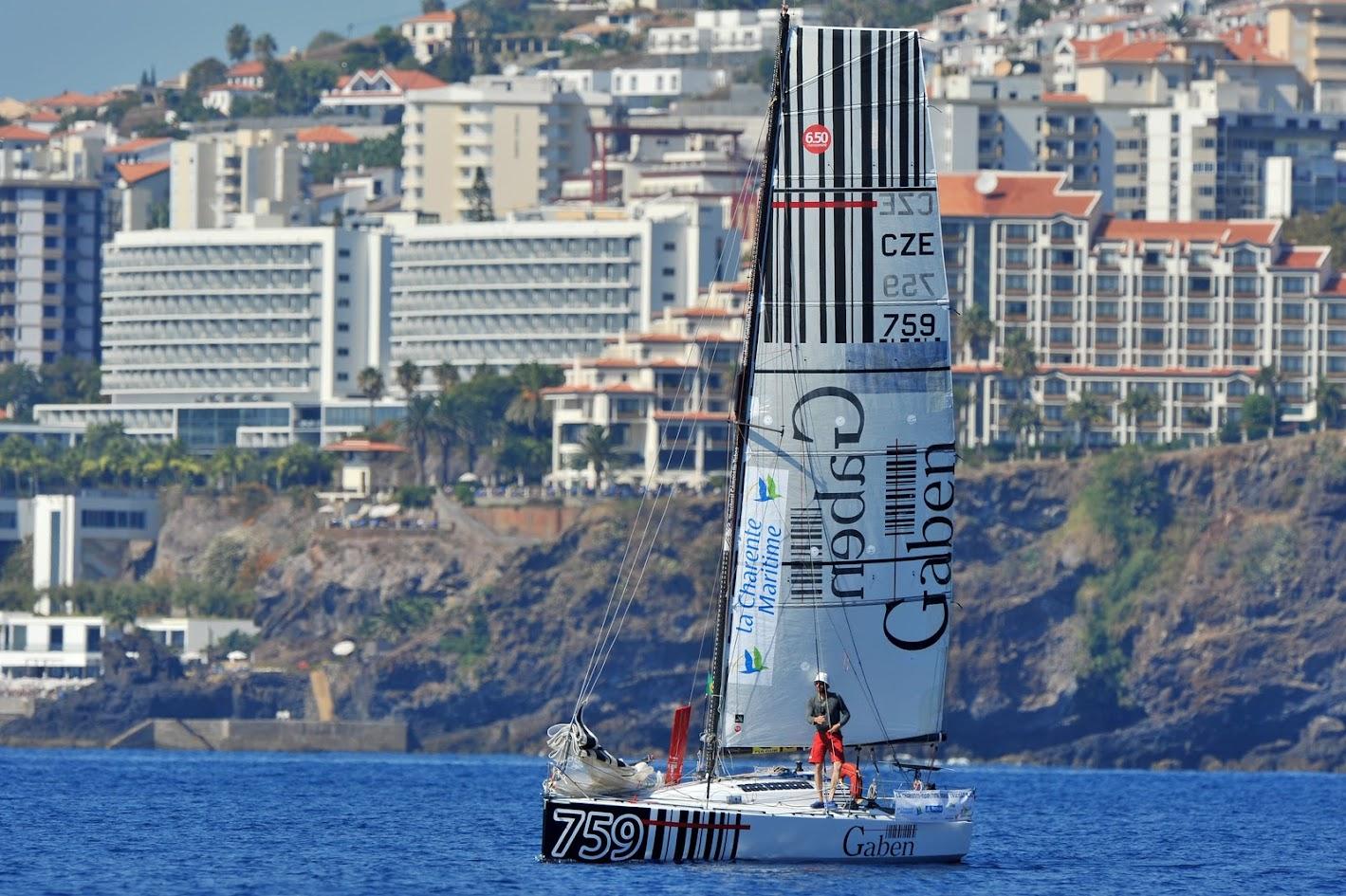
When I pitched the idea that all I needed was the material—and that I’d build the prototype myself, saving half the cost—John didn’t respond. So I decided to go my own way.
I remembered a conversation I had with one of the New Zealand guys who built John’s yacht. His name was Dan. He told me back then that the best boats are built in New Zealand—and if I wanted to learn how to build them, I should try going there. And sure enough, when I looked up what Cookson Boats had produced, I saw nothing but fast, high-tech boats. Their website listed them—and all the names were ones I recognized from the magazines.
If it hadn’t been for Dan, I probably wouldn’t have thought to look in that direction. I would’ve focused on Europe. I couldn’t speak French, but I probably would’ve tried to get into a top-tier boatyard in England. And at least I wouldn’t have had to buy such an expensive plane ticket.
But those two sentences were ringing in my head:
“Start working on it.”
“The best boats are built in New Zealand.”
So I handed in my resignation to John—and decided that, to make my dream come true, I would fly to New Zealand.

Vstoupit do Klubu
Inspirativní příběhy vyprávěné sportovními osobnostmi. Ke čtení nebo v audiu namluvené špičkovými herci. K tomu rozhovorový podcast. Každý týden něco nového.
Did you like the story? Please share it.


